#christian fantasy
Text

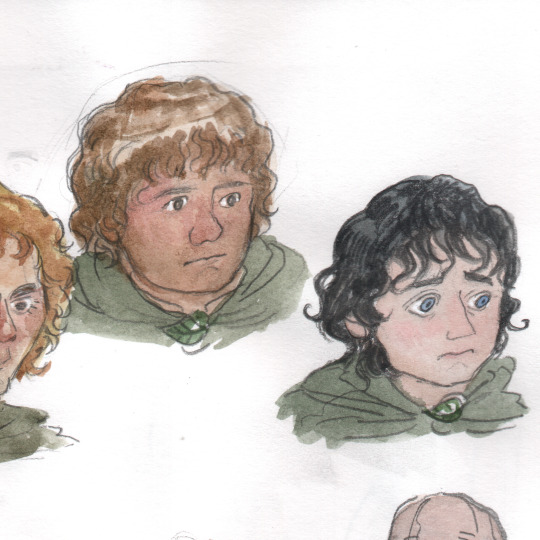
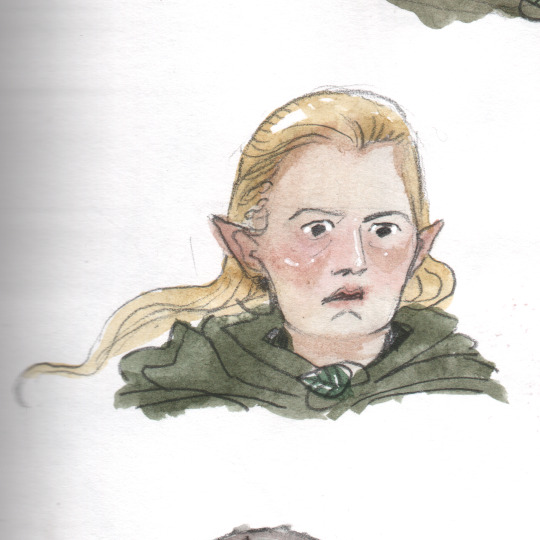
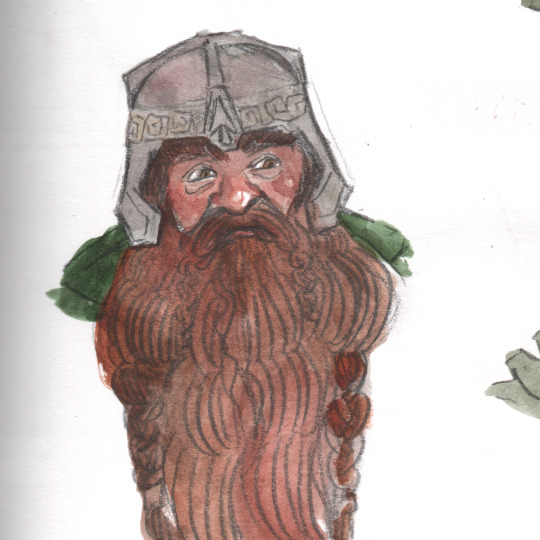
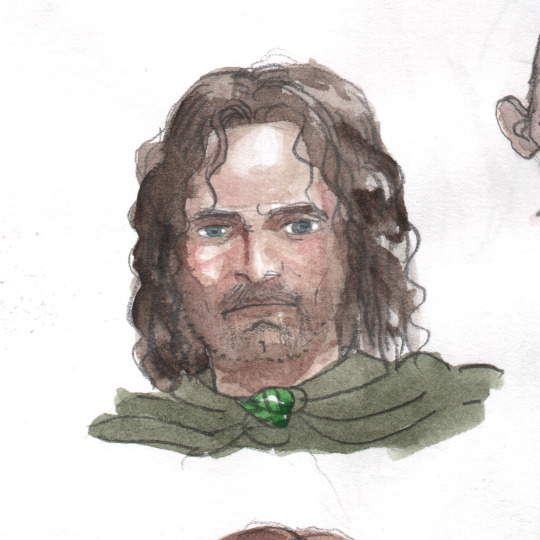
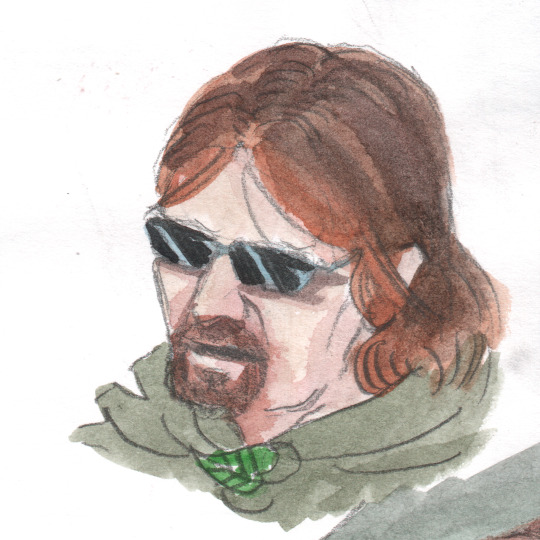
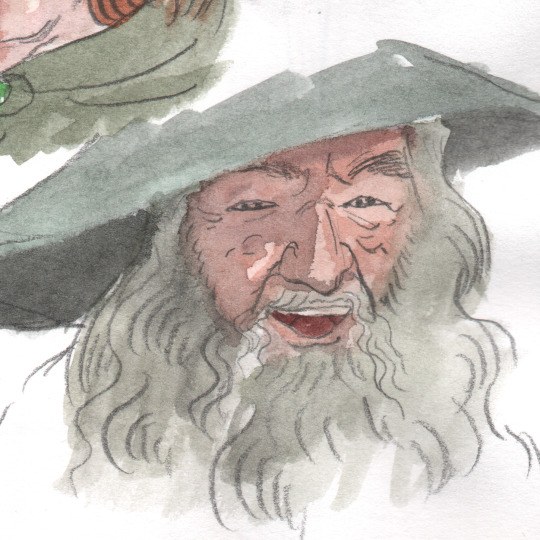


Pippin is the flowerest of the flower
#Lotr#lordoftherings#merry and pippin#christian fantasy#jrr tolkien#lord of the rings#boromir#aragorn#the hobbit#Lord of the rings fanart#lotr fanart#frodo baggins#lotr frodo#samwise gamgee#lotr samwise#legolas#gimli son of gloin#gimli#lotr gimli#lotr legolas#gandalf#lotr gollum
121 notes
·
View notes
Note
I have loved reading your posts on various fiction from Christian perspective. I am wondering your opinion on when fantasy/"magic" fiction becomes too much? I used to encounter a lot of people talking about how basically -anything- fantasy was evil. I have struggled with scrupulosity OCD for many years now so I tend to think things towards a legalistic lens. I'd like to be able to enjoy fantasy again, while carefully discerning, so I'd love to hear what you think are the merits/limits of fantasy
Hi! First off, Jesus said: "These things I have spoken to you, so that in Me you may have peace. In the world you have tribulation, but take courage; I have overcome the world." When you're wrestling with scrupulousity, sometimes it helps to see or hear out loud the reminder that life in Christ is one that's supposed to give you peace, not constant worry about doing everything right--even if you've heard that before and you already know it, sometimes it can help to hear it over again from outside your own head. So there it is! 🤝
Next: thank you for asking me! I'm no professional. But someone did ask me this question once before. I am having a hard time finding it on my blog right now, otherwise I'd link to it, but I'll try to summarize at the end of this post!
EDIT: You asked me to talk about the merits and limits of fantasy and I got carried away explaining why fantasy fiction is not outright evil according to the Bible. I moved that to the end of the post 😅 here's what I think the merits are:
All of Reality, our world, our timeline, was invented by God. That makes Him the storyteller, us His characters, and reality His narrative. Just like any storyteller, He made up a system of rules for His world: rules like, "humans sink in water," and "humans can't be cured of sickness by touching other humans," and "the weather doesn't change just because humans tell it to."
Then God, the storyteller, broke His own world-building rules. On purpose. He wrote Himself (Jesus) into the story as a human who COULD walk on water and COULD heal other humans with a touch and COULD tell the weather what to do, and it obeyed.
In fantasy stories, when a character can break the established rules of the created world, we call that "magic." We call it "magic" when the storyteller brings in a supernatural element to show that this character is special, powerful, capable, set apart from all the others.
So that's what I think the merits are. Fantasy stories have a special kind of closeness to The Storyteller Who Invented Stories, because of that very element of "make the rules then bring in rule-breaking specialness" that He uses.
That's where you get Gandalf, or even the Fairy Godmother, or of course Aslan and the Deep Magic.
The limitations to the genre, I would say, is that fantasy stories are very tempting for storytellers' egos. Because of Tolkien, there's this generation of storytellers who think that inventing a fantasy world with rules and races and magical systems and cultures and, to sum it all up, a whole universe of their own design, is the POINT.
They think the themes and the message of their story comes second to how thorough and clever they can be with their made-up magical systems, or fantasy-race-relations, or made-up languages.
Basically, in no other genre have I observed storytellers getting so excited to play god-of-their-own-clever-world than in fantasy. Then they forget that the important part of a story is the message, not the brain that's capable of inventing worlds and languages and cool-sounding names and ancestries. What they have to say basically gets lost in how flashy and cool they can be while saying it.
But that's another soap box for another time. Those are basically the merits and limitations, I think, broad-strokes.
On to the Biblical worldview for magic in stories below!
"Magic" is mentioned in the Bible. It's sorcery. Specifically, the Bible is telling Christians to stay away from "real" magic...which is basically just "trying to connect with spiritual forces to accomplish anything supernatural." We were created to have relationship with one Spirit: God. Anything outside of that is like a fish trying to breathe oxygen: it hurts us. So the Bible says, "no real magic."
But.
"Fantasy fiction magic" is not "a real live human trying to connect with real demonic forces and accomplish something supernatural." Instead, "fantasy fiction magic" is just "a real live human making up a story. Playing pretend."
The Bible has no commands, no rules, against that. Jesus told stories. His servants tell stories. We're made to tell stories.
And the Bible has no commands against telling a story that includes magic in it.
Think of it this way: God said "do not murder" right? But then in Matthew 18 Jesus tells a parable where one man tries to choke another man. There's attempted murder in the story Jesus is telling: but just because God disapproves of the act of murder, does not mean He disapproves of telling a story that features murder.
Sin being in a story isn't a bad thing. It's realistic, because sin exists. What really matters is whether or not the story treats the sin like sin, and not like an admirable thing. Because the point of all stories is to tell the truth in a compelling way. If the story treats something sinful like it's not sinful, that wouldn't be truthful. But if the story treats sin like it's definitely bad, then it's doing what God invented stories to do: tell the truth.
Now here's where you might say, "yeah, but most fantasy stories treat magic like it's a good thing."
Right. But remember: most fantasy stories don't have what the Bible calls "magic" in them at all.
When the Fairy Godmother in Cinderella says "bibbidi bobbidi boo," she's not calling upon demons to give her supernatural power (which is what the Bible is talking about when it condemns magic.) She's using a pretend superpower that the storyteller made up, on the spot, for the story. Her "magic" is not what the Bible calls "magic," so it doesn't even matter if it's portrayed as "good" or "bad" morally.
Fantasy fiction is fine. There is no reason, Biblically, for Christians not to read fantasy fiction if their only reason for it is "well there's magic in it."
There's nothing wrong with telling a story that has a supernatural element in it. It's only a story. As long as it's not real humans doing creation-worshipping or demon-contacting practices, in real life it's okay to write and it's okay to read.
Let me know if that makes sense!
#Christianity#critical thinking#magic#fantasy#Christian fantasy#asked#answered#sorcery#Christians#Tolkien
68 notes
·
View notes
Text
Ok, I need some help. I lost this book like 10 years ago in a fire, and I cannot for the life of me remember *anything* about it. It was a Christian middle grade or YA book. I *think* it was a portal fantasy, but it could have just been an other world fantasy. I think there may have been like shadow people, and the MC had to travel into this dark land/fortress? I'm sorry, I know that isn't a lot to go on! The one thing I can say is that it had a green and black cover. The cover kinda has the same vibes as Shadow Chaser by Jerel Law:
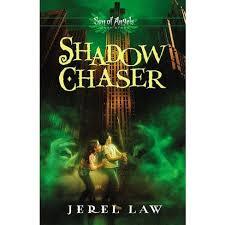
Like to the point that I actually thought that might have been it, but Shadow Chaser was book 3 in a series, and the one I'm looking for was either book 1 or a stand-alone.
Help a girl out? Let me know if you have an idea of what book I'm looking for, or if you know someone who might know feel free to tag them, or share this post... whatever. Thanks!
#reading#reading rat#book recommendations#obscure books#books#christian fiction#christian fantasy#Christian middle grade#Christian ya#help me find this book
51 notes
·
View notes
Text

#the carpenters apprentice#cherith baldry#childrens#christian fantasy#book poll#have you read this book poll#polls
14 notes
·
View notes
Text
I wont give any names or context, but meet some characters of my and my friend's book-
Yeah they're the main characters but good luck discovering abt 'em

#fleurfay speaks#oc#original character#original art#artists on tumblr#writeblr#pay attention to the fair haired one#and the strawberry blonde#them them them#my babies#two of them are spoiler but i wont give context#so good luck hehe#christian fantasy
15 notes
·
View notes
Text
Worldbuilding Map
made a map for my book! This is the basic area where most of the series takes place....
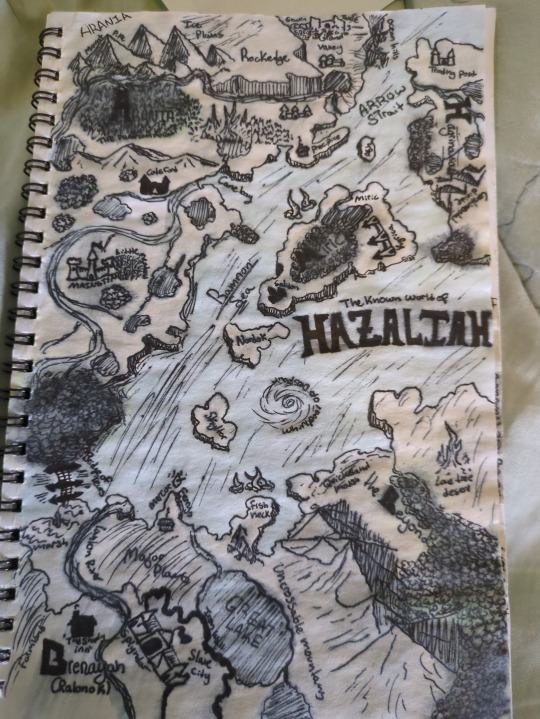
Used coffee and blue and green food coloring
14 notes
·
View notes
Text
How Should Christians Write About... Allegorical Religions?
One of the earliest installments in this series covered how to write about false religions, those that aren’t even real within your world. But today I want to cover the separate issue of how to write about religions that are designed to reflect the truth of who our God is within the context of a fictional world.
As always, this is intended to be food-for-thought, not the one proper
Continue…

View On WordPress
7 notes
·
View notes
Text
Friend of Narnia
(Part 1)
So this is a fic for Susan, in which she becomes a friend of Narnia again. Takes place before the last battle. And yes, I know Susan was an example of how vanity and wanting to grow up too fast can hurt you spiritually, but I want to write a redemption fic so badly 😢 So here it is! (Sorry for throwing Mr . Lewis's metaphor out the window but Susan makes me so sad!)
'It's a silly thing,' Susan Pevensie thought. 'To yearn for somewhere that is only a story.' She sat at the desk in her dorm, busily doing her school work. Lately Susan had been feeling odd. An indistinguishable feeling had nestled itself into her heart and seemed to grow day by day. This feeling, horrible and strange, made it hard to breathe and made tears spring to her eyes. Stress, perhaps, was making her long for Narnia. Susan shook her head. 'Narnia. What a foolish thing to long for.' She stared at the book of maths in front of her. 'It's probably not Narnia itself I want. The feeling of happiness I associate with the memories of us playing the game perhaps. After all, how silly is it to yearn for somewhere that doesn't exist?'.
20 notes
·
View notes
Text
The Starlight Chronicles
In August 2023, I read every book (and the in-between episode books) of The Starlight Chronicles by C.S. Johnson.
I have made it my mission to read as many Christian fiction books as I can while writing my own book. This series was my first taste of the genre.
Specifically, this series is Christian fantasy with supernatural elements in a modern setting. There was so much to read, but I could not put these books down. If you like Angels and Demons and lots of action (superheoroes?) and a little bit of romance, this is for you!
Brace yourself for this long list ahead. These are the books in the series:
#1 Slumbering
#1.5 Awakening: A Christmas Episode
#2 Calling
#2.5 Falling: A Starry Knight Episode
#3 Submerging
#3.5 Seeing: A Wedding Episode
#4 Remembering
#4.5 Belonging: Date Night Episode
#5 Continuing
#5.5 Reflecting: A Dream Episode
#6 Outpouring
#6.5 Reawakening: A Rebirth Episode
#7 Everlasting
#8 Searching (the Prequel that's meant to be read last)
I loved this series and have found it difficult to find books that can follow this series and still keep my attention.
Without spoilers, the book found me laughing uncontrollably, sobbing until my eyes burned, and had me on the edge of my couch to the point where my family had to make sure I was okay on a dozen occasions.
The pros, I didn't see any noticeable plot holes and there were plenty of moments I didn't see coming. The characters were well written, and the setting was vivid enough for even me to see (I struggle with visuals.) The characters had so many redeeming qualities, which is a must-have for a book of this nature. On another note, her books are very affordable and available in paperback, hardback, box sets and digital copies. I did a combo of paperback and digital (because I was too impatient to wait for shipping at the time) and it worked out wonderfully.
The cons of the series, many reviewers said they gave up in the middle of the first book (don't do this.) The said the main character was too narcissistic and rotten, but I promise you it's worth getting through the first book to read all the rest of them. Lastly, the editor did a terrible job (I know it's not the best news.) But, I was able to work around it, just like I work around autocorrect. This was not the author's fault, so I can't fault her for it. Unfortunately for the author, her work was muddied by the editing mistakes made and if I could change anything about the series that would be the only change.
Biblical tie-ins: I saw the transformative power of God throughout this book. I couldn't help but be overwhelmed with gratitude and love for my Savior. I've had time to soak in silence after finishing the series, and it drew me into a closer relationship with Jesus.
Verses that go with this series include:
"For nothing is impossible with God." Luke 1:37
"We also boast in our afflictions, because we know that affliction produces endurance, endurance produces proven character, and proven character produces hope." Romans 5:3-4
"For I consider that the sufferings of this present time are not worth comparing with the glory that is going to be revealed to us." Romans 8:18
"So then, let those who suffer according to God's will entrust themselves to a faithful Creator while doing what is good." 1 Peter 5:9
Final Thoughts: If you're looking for a finished Christian-based urban fantasy series about love, faith and giving evil an epic butt-kicking then pick up these books and binge until you cry snot-faced tears all over your dog. You won't regret a single moment of it.
-Marianne Shepherd
#christian fantasy#christian writers#books#fantasy#literature#my writing#christian fiction#angels and demons#superheores#good vs evil#book recs#book review#book series#fantasy books#book recommendations#starlight chronicles#c.s. johnson
2 notes
·
View notes
Text
Inklings challenge 2022
*CRAZED LAUGHTER*
Here is a snippet from my inkling challenge. I wanted to post from the beginning of the story, but my rough draft is so rough you can’t make sense of it. You miss out on some of my (very mess) world building because I’m dropping you off in the crisis. So here is a quick overview.
This is is set in the fantasy world of Malia, but my world-building is still in it’s young stages and is terrible. Basically this is a world set in a kind of medieval time frame. It is very pagan but there is a new (ish) religion called the Callow’hal which honors the “Hallowed Hosts and the Soverign,” and has been trying to root up the black practices and pagan ideas from the past. But they’re kind of discriminated against and though of as crackpots, and the King’s Royal Guard takes pleasure in tormenting them. They don’t honor their own pagan faith in any real devout way, but they’ve taken a spite to these “Pious Cultists” who they see as taking over the country. Even the the Callow’hal are basically just small people doing small things and they’re not actively trying to take anyone down or physically take over. (By the way, not all the pagans practiced black rituals. The people who practiced that stuff were like druids. Kind of. That’s the stuff I’m still working out. The rest of the pagans were more like Native Americans meets Rome, very “spiritual” but not “supernatural” if you know what I mean. Juri is a young Callow’hal who is married to a Nalvi, who believe vaguely in the “gods of the stars” which guide your way and the ‘spirits of the water’ which shape your destiny.
Juri used to be a member of the Royal Guard but he left it because they had become to cruel and greedy. One day he is home with his wife and seven year old son, and a small group of soldiers come to collect “Protection Money” from the town. The Guard are suppose to protect civilians from the Monsters in the woods and mountains, but really they’re just a bunch of goons that steal money and leave the people to suffer with whatever creature attacks them. Juri is the one who protects his town from the monsters, not the Guard.
When the Soldiers come to Juri’s home and demand money, one soldier tries to touch his wife. Juri defends her and is killed protecting her. Her son, Eilin, also steps up to defend his mother. He is struck down by a soldier, but as he is bleeding the sign of the Hallowed Soverign appears above his head; the three-pointed star. It grows to bright and fearful to stand and the soldiers scatter. Once they’re gone, Nilah prays for help in saving her son.
ANYWAY This thing is really messy and unorganized. I actually VERBALLY RECORDED this entire segment and wrote it down from the recording because I couldn’t make my thoughts flow any other way. This isn’t everything I have, but it’s the only semi-coherent thing. Also, since it was verbal I repeat a lot of names and I’m too tired to edit right now.
@inklings-challenge I know I am INCREDIBLY late to the party. I almost didn’t post at all because this is some of the the most scattered wriiting I’ve ever done. I wish I could have participate more.
I’m probably going to regret this later but here we go. From where Nilah prays for help. 🙈 🙈 🙈
******************
A voice echoed from the mark above Eilin’s head. “take your son outside and pierce the ground with your husband’s sword.” Nilah did as she was told. She went out and struck the earth with her husbands sword. Instantly, a fountain bubbled up from the earth a, spilling over into a warm fountaining pool.
“Draw your son into the water and bless his head with my sign,” said the Voice. “Life shall return to him, from whence it came.” Nilah did as she was bidden and Eilen’s eyes were opened, and mother and son reunited.
Juri was buried in the town graveyard. There were many mourners. Juri was one of the last great Knights, a man not consumed by greed or arrongance, but driven by duty and respect.
Now, it came to pass that the fountain which had sprung up didn’t not dissipate but remained forevermore. Sick and ailing children could come to it and have their infirmities healed answered. Men and women would come and leave their prayers buried in the earth around the pool, in hope their prayer would be better answered. A shrine of sorts was made there, and even some of Nilah’s own people came, at last bucking their superstitious and praying to the Host who dared to bear the mark of the tree, and the Being who dared take the three-pointed star as his own sigil.
And Nilah herself, who herself had long criticized her husband’s faith as mad, found that she also believed in the Hallowed Host and their Kingdom.
Now, Eilin grew into a great man of tall bearing and merry laughter. As a boy he was always gentle but firm. The younger boys loved him for he could not stand a bully, and the young girls admired his strength and his smile. Then, with maturity of age, came maturity of attitude. His neighbors often called the Eilin the great, Eilin the gentle giant, the oak warrior - for he was larger than most men in bearing, spirit, and courage - and strong as an oak tree. Much like his father in laughter and personality, their was a devotion and kindness in his voice and mannerisms that endeared people to him. He was fearless and would often go into the forest to free children who had been ensnared there. He fought the monsters who lurked in the trees, the belching reptiles that climbed up from the depths, vomited out from those places desserted since the Callow’hal people had come.
As Eilin grew the demand on his time grew as well. More often trolls and wraiths from the black altars would sneak their way into the forest and the mountains, ensnaring men and women alike. Eilin, bearing his father’s sword, went out to meet them. Some people whispered that such demands were too much for a young man – he was certain to fall into vanity or pride – or worse, he would fall prey to the monsters he boldy faced.
Yet for all his grandeur he would not join the royal guard however they asked. In his youth he was sent many a letter in the King’s hand. He was offered gold and silver to work for the state. He was begged and entreated. However, Eilin would not answer the messages. When at last, the Steward sent his own guards to claim Eilin, Eilin sent them back with a message of his own.
“I will not serve a sovereign who treats his subjects like slaves. My allegiance lies with Hatha, and the Hallowed that dwell there.”
With this great rejection, Eilin’s reputation grew. A new name was added to him. “The People’s Knight.”
The Royal Guard’s grew jealous of Eilin and his fame. In their jealousy they became more cruel and vicious than before. They burned homes and attacked people who had done them no wrong – attacked especially those who believed in the Hallowed Hosts. They plundered, killing the men, enslaving the children, and treating the women with shameful disdain. Wherever they went chaos ensued.
Always, Eilin followed in their wake, making right their wrongs, mending what was broken. He became an everlasting thorn in their side, and their jealousy and hatred of him grew.
At last one of the soldier spoke. “Listen to me, my friends. Eilin is a terrible man. Great and tall. Who can bear him? Always he seems only two steps behind us, and when he is not two steps behind he is two steps ahead. He protects those who used to fear us, and with him to defend them we cannot obtain the money we once demanded to give them protection form the monsters in the woods. He gives back anything we manage to still – never can we get our share of plunder. Never do we have enough women to satisfy our needs. Once we had all these lands in our hands, caught in terror of our greatness. Our king was away, his charge on us, and the country was ours for the taking. But now a pompous, self-pious man has crept from the water like some deformed evolution of earth.”
The men with him said, “aiye,” and “it is indeed true,” and there was much grumbling. The Soldier continued. “Let us call upon some fell beast of darkness and send him upon “The People’s Knight” who thinks himself invincible. Suppose we call upon a monster who will destroy him for us and bring down his foundations. Suppose we destroy his reputation and all he is, humiliate him before the people. Suppose we get rid of this false warrior – this infected ‘oak tree’.”
And his friends gathered together and agreed to this hideous plot. Now the mastermind of this plot is a fiend and a horror and his name must not be forgotten for it shall be cursed in the lands of Malia, and perhaps at the end of all things all people’s of all kingdom’s shall know and despise it. It has been recorded as Falgo the Deciever, and henceforth we shall call him by this name, that he shall bear the shame of his crime even in his grave.
Now, Falgo the Deciever and his conspirators banded together to call upon a monster who had long ago been struck down and imprisoned by the Man in White for whom no one had a name – but the Callow’hal honored as a holy ancestor and hero. The Man in white and his band were pure of heart and mind, warriors and poets, who studied the heavens and thus rejected the numerous ‘gods’ of the cosmos. They believed in the Hallowed and looked for the coming of the new world. Some said they had been blessed by the Hallowed to rid the land of this monster; the great snake whom Falgo the Deciever now set to release.
In many dark rituals he and his knights kept vigual. The Dark Rituals tainted their minds and souls. Their hatred grew furious, their jealousy shrinking their characters like poison. Now it came to pass that during the night, admist the rituals, several wraiths came to them, drawn by the arts they were performing. Falgo demanded of them the Master, who had long ago ensnared them long ago, and whom they now followed and worshipped. The Wraith’s in their high voices, laughed them to scorn. “The Master only answers to those who will serve him.”
In their blind jealousy, the soldiers were all to eager to destroy their enemy. They said as one; “We will serve. Ye, even to become Wraith’s like you, if only to gain an audience with him. For it is said of old he brought up a terrible beast of great power who could utterly decimate lands and destroy peoples. We wish to call upon this beast, and have control of it, and use it to take down a dreadful man . He is our terrible enemy, and he is an enemy of your Master as well, for he serves the Hallowed Hosts.”
So, the Wraith led the soldiers into the Center of the woods, and down a stairway into the depths of the earth. Here, they were presented to the Master. The Master was pleased with their bargain. In his black mind he thought, what fools, what fools, to bargain so much for so little!
He gave to Falgo the Deciever and his company ten months; Ten to destroy their enemy. He said to them, “Yes I shall call upon a monster and you shall have control over it. It cannot be the same beast which was slain long ago, but it is of the same fabric and long have I worked on it.” And the Master laughed to himself because such beasts were created by malice and hatred and jealousy, and he had all he needed for his monster in the hearts of these men. “In these ten months you will have every chance to destroy the Eilin who has been a sore to you. However, I must tell you that if in ten months Eilin is not destroyed, I will take the Monster back. And you shall serve me evermore.”
The Soldier’s agreed to this. Then the Master bid them to kneel before them, and he lay his dark hands upon their heads, and cursed them. Then he gave to each of them a ring from his fingers, and taught them words in a dreadful language, with which to control the beast, weaken Eilin, and sew iniquity among the good people of Malia.
The Master then drew out from the hearts of Falgo the Deciever, and all with him, the darkness which rested in their souls, and fabricated a monster. It was only a puppet, a shadow with no soul but akin to a machine the black arts could manipulate. It rose into the air, burning and scorching, ready to destroy all in it’s path. It had a great body of writhing mass which could slither like a snake or fly like an eagle.
Falgo the Deciever was given chief charge of the beast, with the others following his charge, able to control the beast to a lesser extent, and able to twist their words so people would grow confused, and brave men frightened. Armed with darkness the men set out with their prize to destroy their enemy.
Falgo commanded the creature attack the smallest villages first, and the creature did as it was bid. Then, Falgo sent one of his men to feign innocence and ask Eilin for help, and so they would ensnare him.
The man played his part well. He ran into Eilin’s home and fell upon his knees. “Friend,” said Eilin. “Whatever is the matter?”
“Eilin, Eilin, If you were ever a friend of the people, help us now! Our village is under attack by a terrible monster. He will destroy us. You must come, you must come immediately. Help us, Eilin.”
“Show me the way.” Eilin followed the soldier to the door. Quickly he turned to his mother. “Mother, I go to war.”
“Son, I am with you.” His mother kissed him, drawing on his head with her finger, the three-pointed star. “Son, remember your mother. Return to me. Remember the healing that comes here, from the Hallowed.” She offered to him a waterskin. He tied it to his belt, He always took some Fountain Water with him, for himself and other who were harmed. Even a few drops would heal those who were injured. “The Host’s be with you!”
Eilin sheathed his father’s sword and went out. He was not afraid. He had fought many monsters and survived, for the blessing of the Hallowed was with him and had been ever since he was first bathed in the sacred water, drawn out by the sword of his father’s sacrifice. He wore with him his Holy Colors and the medallion, set with a three-pointed star. It was his custom to visit the shrine before an attack and to get a prayer from the Selgate, but the soldiers begged and entreated him, and he left without his visit, and without the Selgate prayer.
He followed the malicious soldier to the first village. He found it burned and destroyed. Many people lay dying. More were seen fleeing for their lives. Some were hiding from the flames which pelted from the sky. Then, he saw the monster.
A warning sounded in Eilin’s heart. He knew this was a beast from the Black Kingdom. But it was not like the wraiths, trolls, or mutilated animals which lurked in the woods. This one was shadow and bone, neither living nor dead. This was a cursed beast, a damned impression of reality which the Black Kingdom controlled like a doll. He wondered from whence it had come and how it could have entered this land again when, long ago, the Holy Wit’atal (the man in white) with his band had brought down the same beast and freed Malia from it’s clutches.
Falgo saw Eilin coming. He raised up his hand with the ring and commanded the beast. It surged down upon the innocent people, mouth open, Eilin, brave as he was, drew his sword. He challenged the Shadow in the tongue of the Callow’hal.
The Beast fell to the earth like a massive serpent, and reared in fury. The holy tongue was to him, like fire on his body. He charged Eilin with terrible speed. He caught him in the coils of his shadowy form, and he enveloped the cold black breathless void into his eyes, and he pierced Eilin’s neck with the spikes which were set on his tale – spikes of icey malice. He threw his prey to the ground and roared in pleasure. Few men could survive hatred’s shadow.
Eilin pushed himself to his knees. There was blood on his tunic and blood on his knees, but he kissed the medallion he wore and stood again. His horse, loyal beast, stood near. Eilin knew better than to mount him. He said “Stand back, my friend. Wait for my call.” He raised his father’s sword. “Aba!” He cried. “Wit’atal!” And he struck. The blade struck the Beast who lurched back in surprise and fury. Moral weapons were not suppose to trouble him, yet this one had caused pain. The Beast caught Eilin by the neck in his fluid tale and flew high into the sky. He struck Eilin with his teeth once, twice, thrice, and dropped him from a great distance. Eilin fell.
Before he struck the ground, Falgo had a terrible idea. Suppose the Beast caugh Eilin once more, and with his claws, drove him into the ground and thus ended him in dust, humiliated and broken? Falgo thought with his mind and the Beast respond. He caught Eilin’s body in his shadowy claw and bore him down, intending to make and end of him by teeth and fire, and devour him when dead.
Caught in darkness, Eilin saw his Father’s face. Wake up, Eilin, Juri whispered urgently. Wake up. And he touched his son’s eyes. Eilin awoke. He saw they were near the earth, moving at a mighty rate. He cried, “Be with me!” and as bravely as he could, he turned in the Beast’s grip, and drove his sword into the claw which bore him down. The Beast screamed in pain and dropped Eilin with only a moment to spare. The warrior fell to the ground and was still. He would have ended then and there, but young women from the village got between him and the beast, and shielded his body with her own, and she was born to the Halls of Light, and the Beast was weakened by her love and fled away to recover his strength.
to be continued....
#inklingschallenge#inklings challenge#writing#christian fiction#inklingschallenge2022#writing challenge#catholic fantasy#christian fantasy#catholic writers#christian writers#This makes me so awkward#This is so uncomfortable
13 notes
·
View notes
Photo

After 15 years I have completed the trilogy. The journey has been fantastic and I hope you will join me by reading them soon. Available on Amazon and other online retailers.
#Christian Fiction#christian fantasy#christian trilogy#christian books#jsuthernhicks#where the garden begins#a leaf of faith#roots and branches#messengers and thieves
3 notes
·
View notes
Text

Talya's a walking spoiler, so I'm not going to say much about her. She ruthless, obdurate, and extremely certain of herself. Her scenes always ran too long in the first draft because I have so much fun writing her. She started as a plot device character with one function, and now she's the fulcrum on which the entire plot turns.
6 notes
·
View notes
Text
Wishtress by Nadine Brandes
Wishtress by Nadine Brandes
Wishtress by Nadine Brandes is a Christian fantasy novel. It is my first foray into Christian fiction in a very long time.
Book opens up and by page fifty I am not pulled in, I do not like any of the characters, and I almost set it aside. The only reason I continued reading past my fifty-page cut-off point was because so many readers are so emotionally passionate about this book.
First let’s…

View On WordPress
2 notes
·
View notes
Text
Hello there. ~ obi wan kenobi
Hi, I am a Catholic writer, code name Juley Hogan. I started this blog as a motivation to write more and share my stories with others. I love reading, watching good movies, and beautiful music. Welcome to my blog!
#writers#writing#christian writers#catholic writers#catholic writer#bookworm#introduction#welcome#hi there#reading is my passion#writing is my passion#stories#original stories#christian fiction#christian fantasy
4 notes
·
View notes
Text
Goldstone Wood and the Oddness of Christian Fantasy

Princess Varvare in a kingdom of roses
I want to share some illustrations inspired by the Tales of Goldstone Wood series by Anne Elisabeth Stengl. It's a Christian fantasy series that I really like. Give me a moment to talk about that – unless you absolutely love Christian fantasy, all Christian fantasies, in which case, maybe skip this.
I spent a chunk of the early 2000s defending fantasy as a genre to a variety of Christians I ran across – not the majority, but still a variety of them – both in my head and to their faces. The preacher who said, from the pulpit, that Harry Potter was Satanic. Writers explaining why JRR Tolkien and CS Lewis were (of course) okay, but all other fantasy novels were suspect. Websites that dissected the occult symbolism you never realized was buried in fantasy media. My friend who frowned at me in concern and said she wouldn't want to have to explain to God why she read “that kind of thing” when she met him after death.
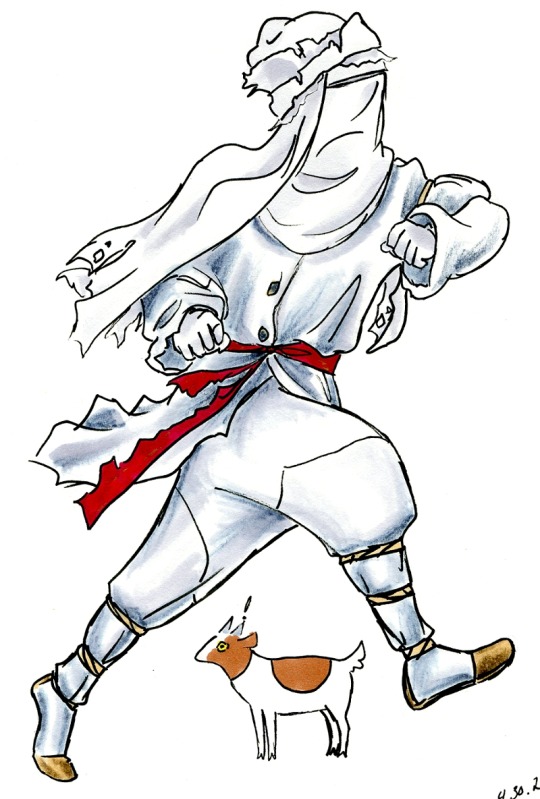
This is Rosie (and her goat Beana, who talks.) I love Rosie utterly, she tries so hard and she feels things so much. The next image is a spoiler, showing her unveiled.
I think that's partially why I'm interested in the genre of Christian fantasy, this attempt to make these two things fit. For me, the fusion often doesn't work. Either writers mix theology and fantasy in a weird confusing way. (Wait, you just had your heroine marry an angel. Do you actually think that happens? Which parts of this actually reflect your belief system?) Or they play things extremely safe and traditional. (Oh boy, another story about a young farm boy who's going to go on a quest and fight the Satan figure and become a hero while his girlfriend does... something peaceful off-screen.) Or they try to be another Lewis in the belief that since Lewis and John Bunyan did it, allegory is an acceptable vehicle for fantasy, and let's be really obvious about the symbolism. (I bet this demon symbolizes evil.) I read Christian fantasy, but it's partially optimistic curiosity, it's partially pessimistic irony, and I haven't found many that I'd recommend.

Rosie unveiled.
But I do like Tales of Goldstone Wood, at least what I've read so far (still missing a few of the installments). I like it enough that I would recommend it to a Christian who wants to read fantasy, or a fantasy reader who doesn't mind Christian themes. Anne Elisabeth Stengl often approaches the Christian elements indirectly, from less obvious angles, so you don't have all the heavy-handed symbols you see in the Lewis and Tolkien knockoffs. She has many, many interesting female characters and a lot of humor. Her series also builds, adding complexity to the world and characters with each installment, many of the characters showing up in multiple books.

Varvare and the unicorn. This unnamed unicorn is one of my favorite elements of the third book – beautiful but dangerous and eldritch. Corrupted – but not exactly evil.
Stengl's also not afraid to get weird and fey with her fantasy elements, at times reminding me strongly of things like Labyrinth, The Neverending Story, and no end of Celtic and European folklore. Her magical characters are unpredictable, merry, fearsome, and unabashedly over the top. Her heroes have depth, flaws to go with their heroism, and never become morally perfect even after their conversions – unlike in so much Christian fiction. Much of Christian fantasy bears the thumbprint of CS Lewis; in Stengl's case, though her writing shows clear nods to Lewis (and not just his Narnia books), she isn't trying to replicate him. These aren't books that Lewis would have written.
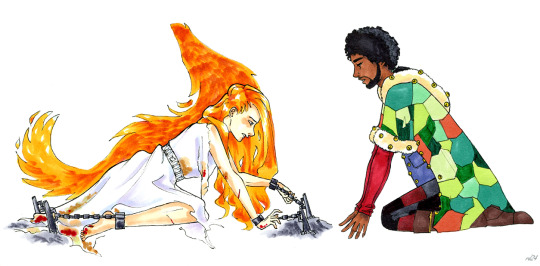
Daylily and Lionheart. If the series has a protagonist, it's probably Lionheart there on the right. He seems to be doomed to keep showing up in different story arcs, and he's always interesting.
I recommend you begin with the first one, Heartless. Though Heartless is the least ambitious/unique entry – it's straightforward and, of all of the books, the most directly allegorical. (I bet this guy's the Jesus figure. Yep, yep he is.) But it lays the foundation for the world and establishes many of the central characters, including my favorite Eanrin, the blind cat-shapeshifting bard-knight with the heroism of a knight, the selfishness of a cat, and endless flair. Stengl does explore Christian themes, but at the same time she clearly wants to create beautiful language, memorable characters, and engrossing stories. The stories and characters don't feel secondary to the message.

Eanrin, I like him a lot. He also shows up in almost every book, at least the main books, sometimes pre-injury, sometimes post-.
My favorite book is Starflower, the fourth, because of its courageous heroine (who grows into the librarian-knight Imraldera we see in other books), its twisted echoes of “Beauty and the Beast” and Till We Have Faces, and its focus on, who else, Eanrin in his younger years, before he's really gotten that whole hero thing worked out.
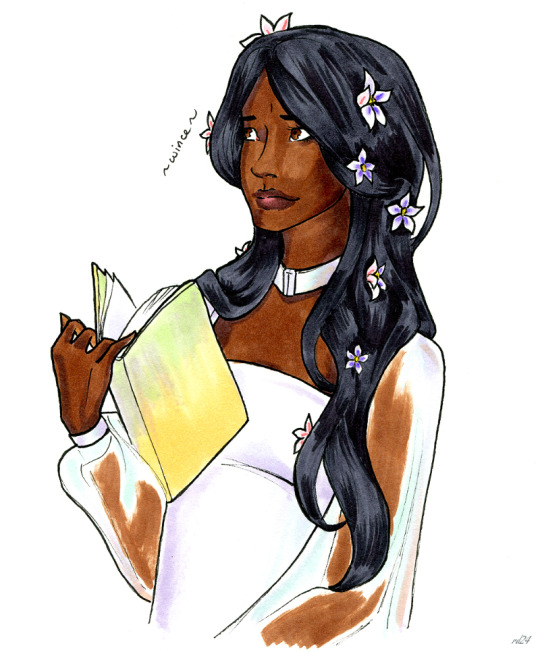
Imraldera. (She's looking at Eanrin.) The series is allegedly over, but I feel like there are still some narrative threads hanging, including with Imraldera here. My hope is that the author returns to the series someday.
As with any recommendation, this isn't a blanket recommendation; you may find things in here you don't like. I don't sign off on every element as perfect. But Christian fantasy is a small genre, it's a weird genre, in my opinion it's often a clumsy genre. Goldstone Wood is proof that it can produce interesting, original material – stuff not merely “good for a Christian fantasy”, but just a good series, period.
#tales of goldstone wood#anne elisabeth stengl#christian fantasy#imraldera#rosie (togw)#beana#eanrin#daylily (togw)#lionheart (togw)#christianity#meta#i honestly don't know what the goldstone wood or even christian fantasy fandom is like on tumblr (if it exists at all)#hopefully i'm not stepping into discourse#i want to recommend a series that i think is really inventive and has some great characters#mine#tales of goldstone wood spoilers
1 note
·
View note
Text

In "The Sword of the Spirit: Full Armor of God," Hezekiah is spared from certain death by Jesus Christ, who entrusts him with a vital mission: to deliver a message of salvation to the faithless inhabitants of the doomed City of Sodom. But as Hezekiah confronts abhorrent citizens and evil angels, the odds seem insurmountable. Can he survive the darkness and lead the people back to the light? For more information and to get your copy, visit https://www.waymanjackson.com/book/.
#Wayman Jackson#The Sword of the Spirit#ReadersMagnet#Christian Fantasy#Christian Mystery#Hezekiah#Sodom#Bible Stories#Spirit Warrior#Angels and Demons#Prophecy
0 notes